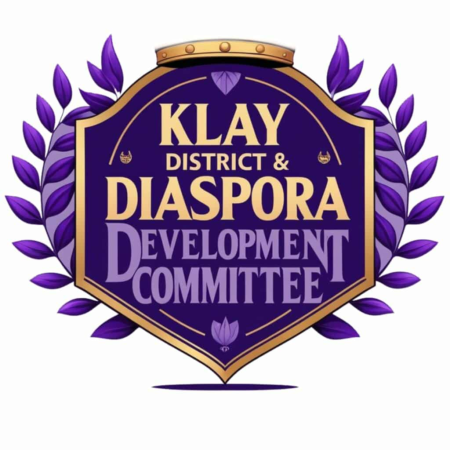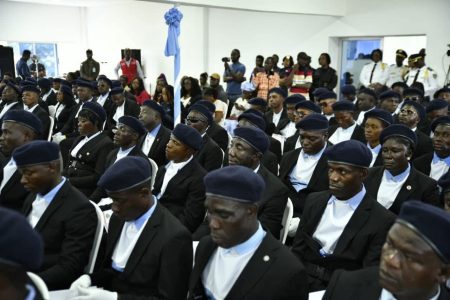The conferment of an honorary doctorate degree upon Ghana’s Inspector-General of Police (IGP), Mr. Christian Tetteh Yohuno, by the Accra Metropolitan University (Accra Met) has ignited a heated debate centered on the legitimacy of the awarding institution. While the IGP’s contributions to national security and community policing reforms are widely acknowledged and celebrated, the honorary degree has inadvertently cast a spotlight on the accreditation status of Accra Met, raising concerns about the validity of the award itself. This incident underscores the critical importance of verifying the accreditation of institutions offering such honors to prevent controversies that could tarnish the reputations of both the awardee and the awarding institution.
The controversy erupted shortly after the announcement of the honorary doctorate, with social media platforms buzzing with questions regarding Accra Met’s accreditation status. Netizens voiced their concerns, urging public figures to exercise due diligence before accepting such awards, particularly honorary degrees, by verifying the institution’s standing with the Ghana Tertiary Education Commission (GTEC). The concerns stem from previous instances where individuals were compelled to relinquish titles conferred by unaccredited institutions, highlighting the potential reputational risks associated with accepting degrees from institutions lacking proper authorization. This proactive approach, they argue, is crucial to preventing the recurrence of controversies involving fraudulent degrees.
The debate surrounding the IGP’s honorary doctorate underscores the broader issue of academic integrity and the importance of maintaining public trust in educational institutions. The GTEC, as the regulatory body for tertiary education in Ghana, plays a crucial role in ensuring quality assurance and upholding academic standards. It has previously issued stern warnings against unaccredited institutions conferring honorary degrees, deeming such practices illegal and misleading. This assertive stance by the GTEC aims to protect the integrity of the higher education system and safeguard individuals from inadvertently associating themselves with institutions operating outside the established legal and academic frameworks.
The silence from both Accra Met and the GTEC regarding the accreditation status and the legitimacy of the IGP’s honorary doctorate has further fueled the online debate. The absence of a clear and timely response from both entities has contributed to the growing uncertainty and speculation surrounding the issue. This lack of communication not only prolongs the controversy but also underscores the need for greater transparency and accountability from educational institutions, particularly when conferring honorary degrees. A prompt and definitive statement from both Accra Met and the GTEC is crucial to clarifying the situation and addressing the public’s concerns.
The incident highlights the responsibility of both awarding institutions and recipients to ensure the legitimacy of honorary degrees. Institutions must adhere to rigorous accreditation standards and transparently communicate their status to maintain public trust and avoid controversies. Recipients, particularly public figures, bear the responsibility of verifying the credentials of the awarding institution before accepting such honors. This due diligence protects their own reputation and upholds the integrity of the recognition process. The IGP’s case serves as a reminder that even well-intentioned recognition can inadvertently become entangled in controversy if the awarding institution’s legitimacy is questionable.
In conclusion, the controversy surrounding the IGP’s honorary doctorate underscores the crucial need for due diligence and transparency in conferring and accepting such awards. The ongoing debate emphasizes the importance of verifying the accreditation status of awarding institutions to avoid reputational damage and uphold academic integrity. The silence from Accra Met and the GTEC further highlights the necessity for proactive communication and accountability from educational institutions. This incident serves as a valuable lesson for both institutions and individuals involved in the conferment and acceptance of honorary degrees, emphasizing the importance of upholding the highest standards of legitimacy and transparency. Ultimately, the resolution of this controversy hinges on a clear and definitive statement from both Accra Met and the GTEC regarding the institution’s accreditation status and the validity of the awarded honorary degree.














